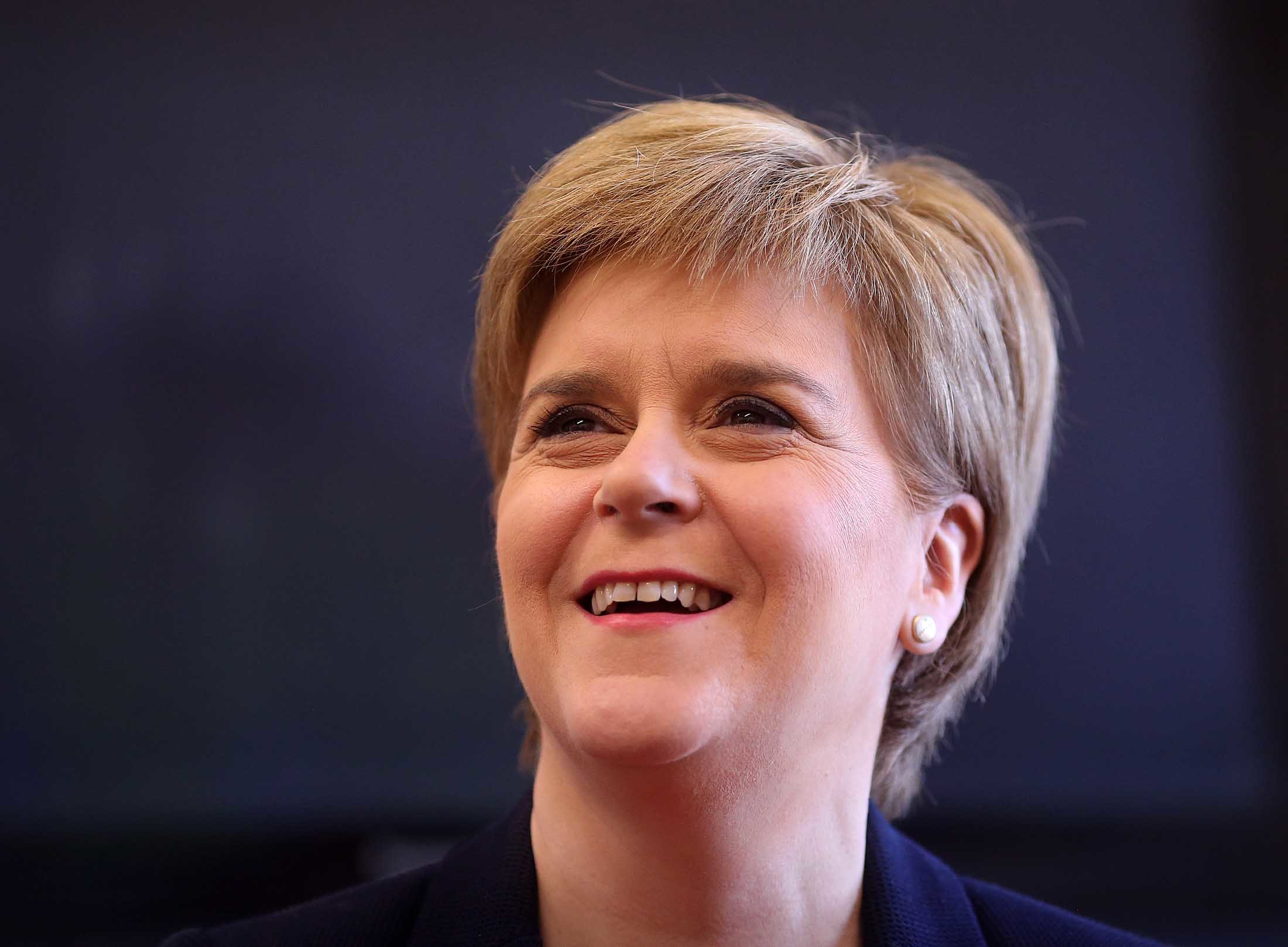We need to talk about the Tory Triangle – it’s a bit like the Bermuda one, only it is political predictions that get lost without trace.
In one corner are the Tories. In office, falling out over Europe, but still popular in England.
In another corner, Labour, a lost cause in Scotland but the UK’s main opposition party, and therefore the only hope of ever getting the Tories out.
And in the third corner, the SNP – winners of 56 seats – never enough to govern outright, but plenty to play power-broker.
This triangle is a Tory one, because it favours them getting back into office.
For Labour to overtake the Tories and have an overall majority in the House of Commons, they need to be 12.5% above Tory support, according to the polling guru John Curtice of Strathclyde University.
Looking at a table of all the polls since 2010, available at ukpollingreport.co.uk., you can see that the Labour party rarely gets that far ahead of the Tories.
YouGov reported a 15 point advantage in a poll in February 2013, but of late the margin has been much less, and frequently the Tories are ahead.
At a general election, the only time in recent history the Labour party have polled around 13% ahead of the Tories was in the 1997 landslide, Tony Blair’s first victory ending 18 years of Tory government.
The Tories never need such a large margin ahead of Labour to win, a result of where votes are cast in a first-past-the-post system. Put another way, it’s easier for the Conservatives to win seats than it is the Labour in the Westminster system.
Therefore for Labour to win the next UK election, it needs to enjoy a phenomenal boost in support.
What has made life harder for Labour is the loss of Scotland. Where once it could count on 50 Scottish seats adding to the necessary Westminster total of 320, it can no longer.
Therefore, a Labour government looks very unlikely, no matter how terrible the Tories are.
Even gaining enough for a minority government would require a big lead, which doesn’t seem credible given the current popularity of the party.
So if the Tories are to be voted out, it looks certain that Labour needs to form a coalition with the SNP.
At the last UK election, in 2015, the SNP were very keen on the idea of a pact. Labour less so.
The idea of a party which wants to leave the UK holding the balance of power round the Cabinet table was too much for many English voters, who reluctantly voted Tory to keep Nicola Sturgeon out of Downing Street.
Which suggests a Labour/SNP coalition may make sense on paper, but will never work in reality. English voters might always think that it is frankly taking the mickey to stand for Scottish Independence but want to govern the UK.
Labour might then be tempted to talk up a coalition with the SNP well in advance of the next election. That way, the electorate could become familiar with the idea, and Nicola could go on a charm offensive down south.
The problem with that is it makes Scottish Labour redundant – why bother voting for a Labour MP if you know an SNP MP is going to have the same effect.
Which means Labour in Scotland would be opposed to the idea, which takes us back to the original problem – with Scotland voting SNP, are we destined to always have a Tory government in London?
Of course nothing is for ever in a democracy – big shocks happen, dazzling candidates come along and people change their mind (just look at how Scotland has switched from Labour to the SNP).
However, shocks happen about once every twenty years – it seems to take people two decades to go through the stages of political disappointment.
This is a problem for Labour – the 12.5% margin will become well known and voters will not switch to the party unless they feel everyone else is doing the same. Corbyn doesn’t need to just win the popular vote, but win big.
Oddly, it’s an opportunity for Labour in Scotland – to shape policy around the idea of SNP for Holyrood, Labour for Westminster.
It is also why UK Labour strategists are looking again at proportional representation for Westminster elections.
The SNP have styled themselves Scotland’s Party by which they mean – Scotland’s Party in the UK. They are quite happy to be powerful within the existing system than risk it all for another Indie vote.
The problem is when voters twig that an SNP MP equals a Tory government. Fundamentalists may demand that the SNP drops its referendum policy and equates electoral success with a mandate for independence.
It makes a Tory split after the EU vote unlikely. People may be angry at Cameron, or Boris Johnson on the other side, but ambitious Conservatives reckon they can stay in government for a long time if they all get along.
The Tory Triangle – a puzzle that SNP and Labour need to solve before May 7 2020.


